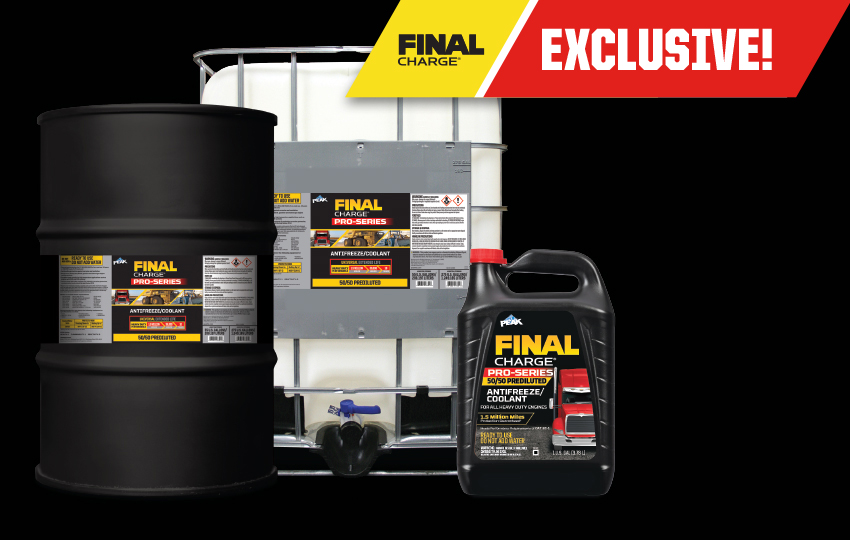1.5 MILLION MILES - BEST IN INDUSTRY SERVICE LIFE
New Final Charge® PRO-SERIES advanced heavy duty antifreeze/coolant technology delivers highest service-life in the industry. Guaranteed. Available in full strength and 50/50 prediluted drums, totes, bulk, & gallons.
Learn More

Put Trust in Your Truck™
BlueDEF PLATINUM® with exclusive Advanced SYSTEM SHIELD™ Technology is designed to significantly reduce harmful deposits in the selective catalytic reduction system thus providing optimum fuel economy, saving money on costly repairs, and sustaining the life of your SCR system.
Learn More

Latest News & Insights from OWI Commercial
-

The Right Coolant for EVs, Hybrids and Plug-in Hybrid Vehicles
Current projections indicate two out of every three autmotive & light-duty vehicles manufactured will be electric by 2032. While this will have widespread impacts to the automotive industry, one thing will remain steadfast: the necessity of coolant.
Learn More
-

The Important (and Overlooked) Components for Vehicle Visibility and Safety
Safety is the most important consideration for drivers on the road – and for good reason. Read on to learn about the critical (but often overlooked) safety components like high-performing wiper blades, bright vehicle lighting and quality windshield wash.
Learn More
-

New Emissions Rules Signal Major Changes for Heavy-Duty Fleets
Heavy-duty truck fleets might soon be at a crucial crossroads. Learn more about the new Environmental Protection Agency (EPA) regulations below.
Learn More

